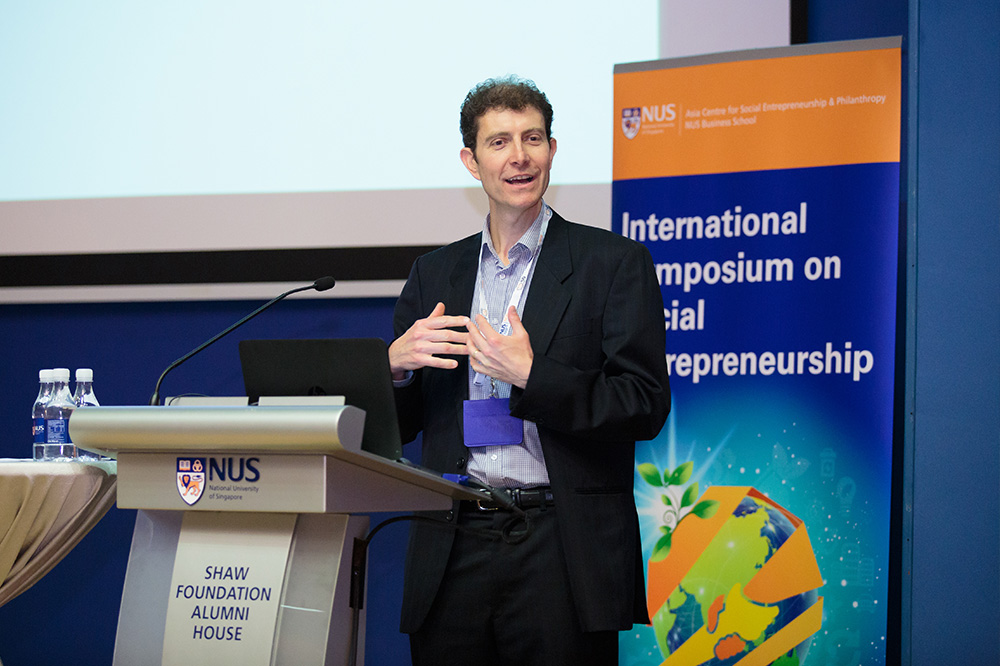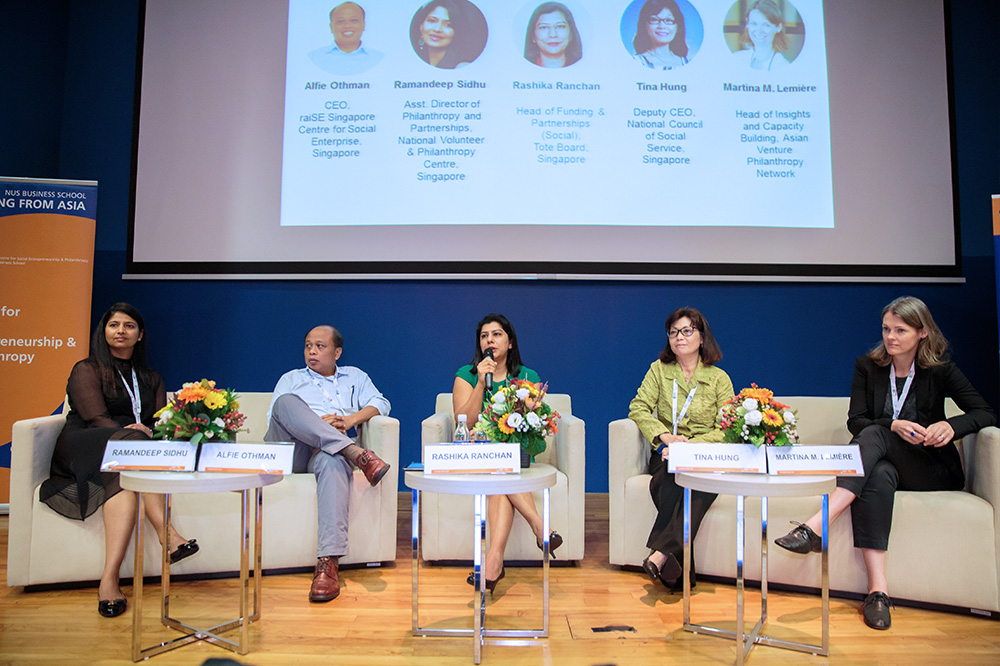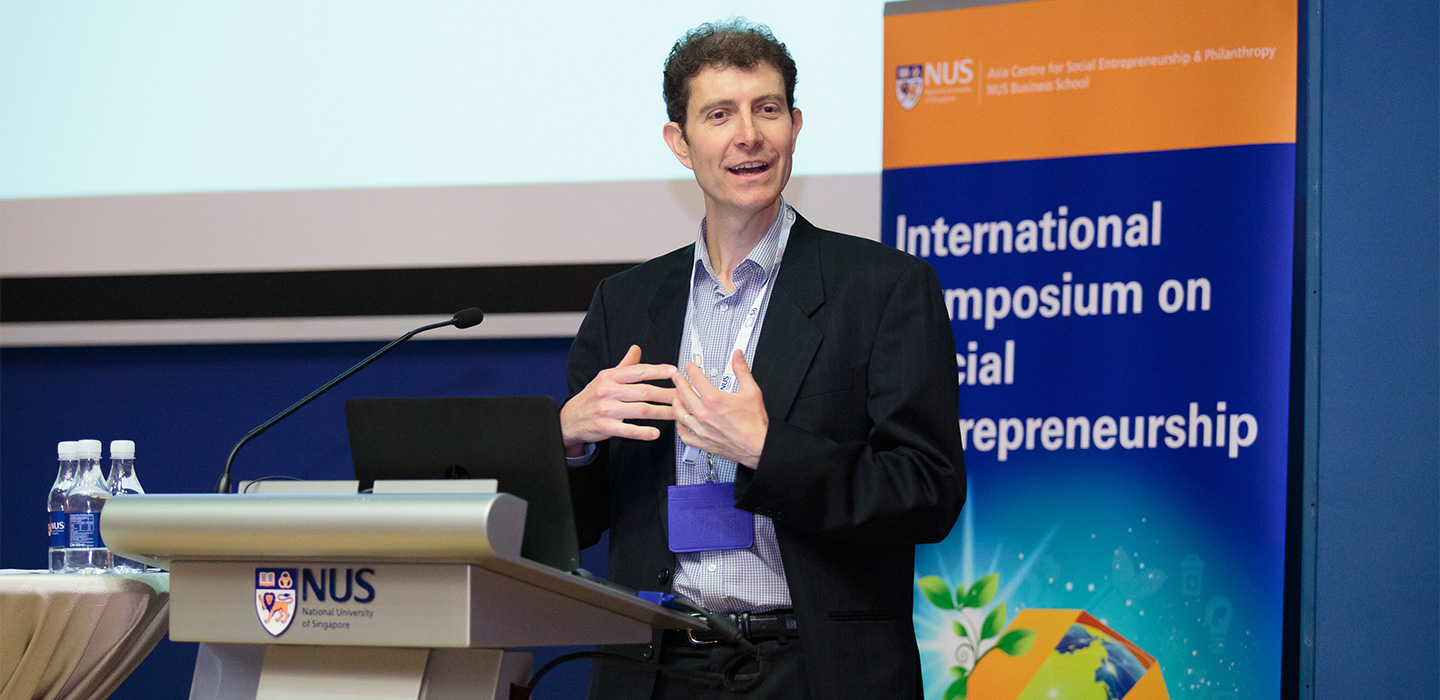2017 marked the third International Symposium on Social Entrepreneurship (ISSE) since the inaugural event in 2015 organised by Asia Centre for Social Entrepreneurship and Philanthropy at NUS Business School. On 21 April, ISSE 2017 provided a platform for academic researchers, social entrepreneurs and various stakeholders to share their knowledge and expertise on the development of social enterprises.
The theme for 2017, Impact Assessment for Social Enterprises: Contextualisation or Generalisation, pointed to a push towards understanding frameworks to facilitate social investment flows so as to rightly allocate resources to where the expected social impact is the highest.
Before social enterprises can scale up, they need to provide convincing evidence that their activities have a social impact. There exists a wide array of options for social impact assessments, ranging from simple logical frameworks to complex reporting tools and metrics, and participatory evaluations to randomised control trials. How are these approaches different – and is there a right approach? Moreover, impact assessment is costly. While some may consider it a legitimate cost for aiding enterprises in strategic decision making, others may see it as an extra cost and bureaucracy at the expense of the effectiveness of the enterprise.
Professor Fergus Lyon, the keynote speaker, from the Centre for Enterprise and Economic Development Research, Middlesex University, took the stage with his speech discussing the opportunities and dilemmas of impact assessment for social enterprises.

Professor Fergus Lyon from the Centre for Enterprise and Economic Development Research, Middlesex University, at ISSE 2017.
Following his presentation, a plenary session featuring five thought leaders in the social space in Singapore shared how they use impact assessment in their organisations and their line of business. The general sentiment was that forming networks, sharing knowledge, and engaging stakeholders could ultimately show impact assessment to improve outcomes for beneficiaries.

Plenary session with (left to right) Ramandeep Sidhu, assistant director of philanthropy and partnerships, National Volunteer & Philanthropy Centre (NVPC), Singapore; Alfie Othman, CEO, Singapore Centre for Social Enterprise (raiSE); Ranchika Ranchan, head of funding & partnerships (social), Tote Board Singapore; Tina Huang, deputy CEO, National Council of Social Service, Singapore; and Martina Mettgenberg Lemière, head of insights and capacity building, Asian Venture Philanthropy Network (AVPN).
Following the insightful sharing session, academic researchers from various institutions were invited to present their respective papers. The following four papers were presented:
- A landscape of social impact assessment practices among impact investors in Asia – Frank Hubers, ACSEP, NUS Business School, Singapore
- Measuring the social value added by social enterprises – A case study applying the SIMPLE methodology – Jim McLoughlin, University of Brighton, United Kingdom
- Reporting in social entrepreneurship – Barbara Scheck, Ann-Kristin Achleitner, Alexander Bassen, and Wolfgang Spiess-Knafl, Munich Business School, Germany
- Distinguishing game changers from boastful charlatans: Which social enterprises measure their impact? – Karen Maas, Erasmus University Rotterdam, The Netherlands
Reflecting on the key takeaway from ISSE 2017 as the sessions drew to a close, it is evident there are a need for greater understanding of how organisations can demonstrate their impact and a need for a common language on impact assessment. Indeed, funders tend to have more say in driving this common language and the allocation of the right resources to the right place could maximise the social impact brought about by social enterprises.





